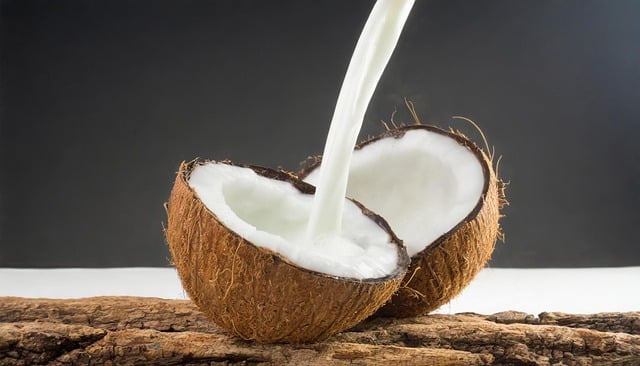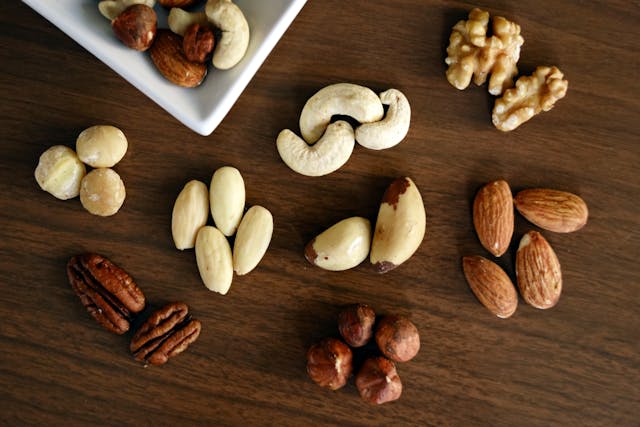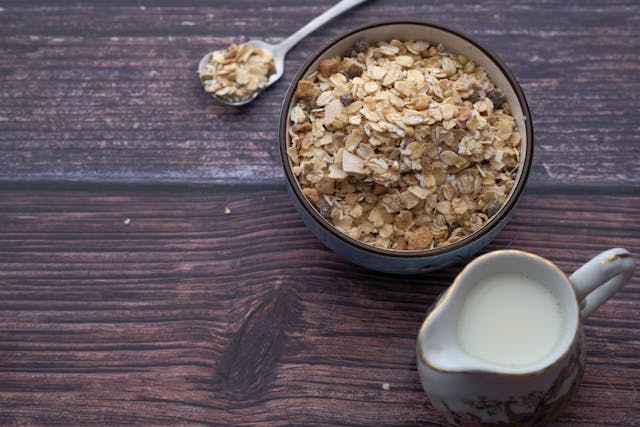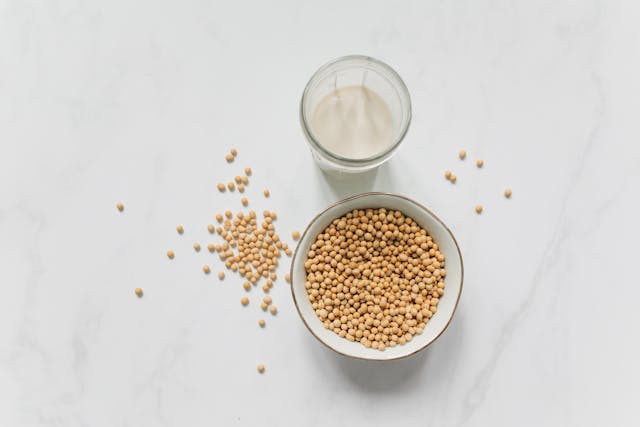
White Chocolate: A Comprehensive Guide
July 11, 2024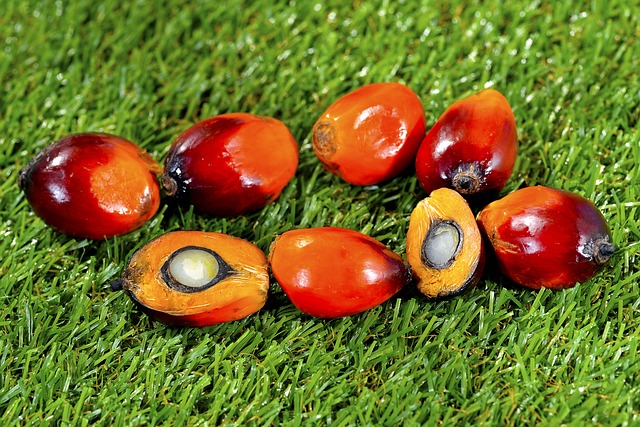
The Big Deal About Palm Oil in Chocolate
July 21, 2024Dairy Milk vs. Popular Plant Milks
Almond, Coconut, Oat, & Soy
The popularity of plant milks has grown every year over the last ten years and their demand is expected to continue growing. Market research groups provide differing global market values for 2024 and forecasts for the next decade, with the lowest prediction we’ve seen being around 9% compound annual growth rate in the demand for plant-based milks.
This growth is thanks to the vegan lifestyle, dietary restrictions for people with hypercholesterolemia, allergy to dairy, lactose intolerance, cow’s milk protein intolerance, and a growing concern for animal welfare.
Because plant milks are not true milks (since only animals lactate), there’s been war on how to label them. Some businesses prefer ‘mylk’ or ‘m*lk’ for plant products to differentiate them from dairy milk. In the European Union and the UK, you can use the words ‘drink’ or ‘beverage’ but not milk for plant juices.
In this article we go ahead with milk with the understanding that you know we’re referring to plant-based sources.
There are about 17 plant-based milks made from legumes, nuts, seeds, grains, and pseudocereals. The most popular ones are almond milk, oat milk, soymilk, and coconut milk.
Uses of Plant Milks
While plant-based milks may be used solely as dairy alternatives by vegans and consumers with dietary restrictions, for other consumers, it’s a matter of desire for a particular taste. Whatever the reason for use, plant milks are versatile and can fit into various foods and recipes.
· Cooking: Plant milks are used in soups, sauces, bakes, and pancakes.
· Drinks: Plant-based milks can be drunk on their own or used for creaminess in beverages like hot chocolate, tea, coffee, and smoothies.
· Dairy substitutes in ice cream, cheese, cream, butter, yoghurt, mayonnaise, and confectionery.
Coconut milk: raw coconut milk (not yet skimmed) is a stable in cuisines in East Africa, South Asia, Southeast Asia, and Oceania. It can be added to soups, sauces, smoothies, or used as a dairy substitute in cereals. Skimmed milk is used in a variety of beverages. Coconut milk is also used as a dairy alternative in vegan milk chocolate.
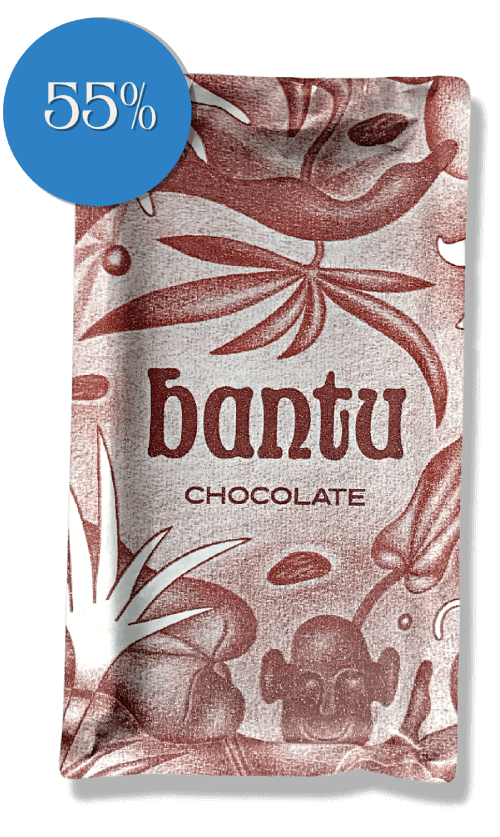
Dairy-free milk chocolate made with coconut milk
Soy milk: Fits well in tea and coffee, in smoothies, oatmeal, milkshakes, pancakes and muffins. Soymilk can also replace dairy in plant-based yoghurt, cream, and kefir.
Almond milk has a wide application in sweet and savoury dishes. Baked goods, toast, smoothies, milkshakes, chocolates, pudding, mashed potatoes, ice cream, curries, etc. all have room for almond milk as a dairy substitute or merely as an additional ingredient.
Oat milk can be used to cream soups, stews, and curries. It also finds applications in beverages like hot chocolate, tea and coffee, chocolate bars, smoothies, baked goods, pudding.
Plant Milks vs. Dairy Milk
Plant milks vary in calories, nutrients, and other contents based on source plant and added ingredients like sugar and oils.
Let’s see how some popular types stack up against whole cow’s milk. Whole cow’s milk is richer in calories, nutrients, and minerals than skimmed and semi-skimmed milk.
Almond Milk vs. Cow’s Milk

Photo by dhanya purohit on Unsplash
Almond milk is a dairy-free milk made with almonds. Commercial brands may be sweetened or unsweetened and may have artificial flavours to mimic vanilla and chocolate.
Without added ingredients, almond milk is lower in calories and macronutrients than whole cow milk, and is a good substitute for people with hypercholesterolemia, lactose intolerance, and calorie restrictions.
|
Nutrient Value/Cup (244g serving size) |
Almond Milk (unsweetened) |
Whole Cow Milk |
|
Calories |
46 |
146 |
|
Protein (g) |
1.6 |
8 |
|
Tota fat (g) |
3.8 |
7.81 |
|
Total saturated fat (g) |
|
4.54 |
|
Carbohydrate (g) |
1.6 |
11.4 |
|
Fibre (g) |
<1.8 |
0 |
|
Total sugars (g) |
~2.8 |
11.7 |
|
Calcium (mg) |
385.5 |
300 |
|
Magnesium (mg) |
20 |
29.3 |
|
Potassium (mg) |
119.6 |
366 |
|
Sodium (mg) |
144 |
92.7 |
|
Vitamin B12 (mcg) |
1.1 |
1.32 |
|
Vitamin A (IU) |
148.8, Retinol |
78.1 RAE, 75.6 Retinol, 17.1 beta carotene |
|
Vitamin D (D2 and D3) (IU) |
3.88 |
2.68 |
|
Cholesterol (mg) |
0 |
29.3 |
|
Glycaemic Index (potential to raise blood glucose levels 2 hours after consuming) |
Low (25) |
Low (31) |
Nutrient/mineral data source: USDA FoodData Central. Read product labels for added sugar, fortified vitamins, and other ingredients.
Oat Milk vs. Cow’s Milk
Oat milk is a plant-based alternative milk from whole oat grains. It can be sweetened or unsweetened and may be flavoured with vanilla or chocolate.
|
Nutrient Value/Cup |
Oat Milk (Oatly 240ml) |
Whole Cow Milk (244g Cup) |
|
Calories |
120 |
146 |
|
Protein (g) |
3 |
8 |
|
Tota fat (g) |
4.99 |
7.81 |
|
Total saturated fat (g) |
0.504 |
4.54 |
|
Carbohydrate (g) |
16 |
11.4 |
|
Fibre (g) |
1.92 |
0 |
|
Total sugars (g) |
7.01 |
11.7 |
|
Calcium (mg) |
350 |
300 |
|
Magnesium (mg) |
– |
29.3 |
|
Potassium (mg) |
389 |
366 |
|
Sodium (mg) |
101 |
92.7 |
|
Vitamin B12 (mcg) |
1.2 |
1.32 |
|
Vitamin A (IU) |
– |
78.1 RAE, 75.6 Retinol, 17.1 beta carotene |
|
Vitamin D (D2 and D3) (IU) |
– |
2.68 |
|
Cholesterol (mg) |
0 |
29.3 |
|
Glycaemic Index (potential to raise blood glucose levels 2 hours after consuming) |
Medium (61±8) |
Low (31) |
Nutrient/mineral data source: USDA FoodData Central. Read product labels for added sugar, fortified vitamins, and other ingredients.
Coconut Milk vs. Cow’s Milk
Coconut milk is made from the flesh of coconut, the fruit of the coconut palm tree. It has a pleasant natural flavour and may be sweetened. Like peanut milk, raw coconut milk is high in fat and calories, and is fine for cooking. For drinking as a dairy substitute, its high fat content may be reduced to produce differentiated products called coconut milk beverages.
|
Nutrient Value/Cup (244g) |
Coconut Milk (for use as milk substitute) |
Whole Cow Milk |
|
Calories |
75.6 |
146 |
|
Protein (g) |
0.512 |
8 |
|
Tota fat (g) |
5.08 |
7.81 |
|
Total saturated fat (g) |
5.08 |
4.54 |
|
Carbohydrate (g) |
7.12 |
11.4 |
|
Fibre (g) |
0 |
0 |
|
Total sugars (g) |
6.1 |
11.7 |
|
Calcium (mg) |
459 |
300 |
|
Magnesium (mg) |
0 |
29.3 |
|
Potassium (mg) |
46.4 |
366 |
|
Sodium (mg) |
46.4 |
92.7 |
|
Vitamin B12 (mcg) |
1.54, plus added |
1.32 |
|
Vitamin A (IU) |
154, each of retinol and RAE |
78.1 RAE, 75.6 Retinol, 17.1 beta carotene |
|
Vitamin D (D2 and D3) (IU) |
2.44 |
2.68 |
|
Cholesterol (mg) |
0 |
29.3 |
|
Glycaemic Index (potential to raise blood glucose levels 2 hours after consuming) |
Low (40) |
Low (31) |
Nutrient/mineral data source: USDA FoodData Central. Read product labels for added sugar, fortified vitamins, and other ingredients.
Soymilk vs. Cow’s Milk
Soymilk is a dairy-free alternative milk produced from soybeans. It is the plant milk most similar to dairy milk.
|
Nutrient Value/Cup (244g) |
Soy Milk |
Whole Cow Milk |
|
Calories |
105 |
146 |
|
Protein (g) |
6.34 |
8 |
|
Tota fat (g) |
3.59 |
7.81 |
|
Total saturated fat (g) |
0.5 |
4.54 |
|
Carbohydrate (g) |
12 |
11.4 |
|
Fibre (g) |
0.488 |
0 |
|
Total sugars (g) |
8.91 |
11.7 |
|
Calcium (mg) |
300 |
300 |
|
Magnesium (mg) |
36.6 |
29.3 |
|
Potassium (mg) |
298 |
366 |
|
Sodium (mg) |
115 |
92.7 |
|
Vitamin B12 (mcg) |
2.07, plus added |
1.32 |
|
Vitamin A (IU) |
134 each of retinol and RAE, 4.88 beta carotene |
78.1 RAE, 75.6 Retinol, 17.1 beta carotene |
|
Vitamin D (D2 and D3) (IU) |
2.68 |
2.68 |
|
Cholesterol (mg) |
0 |
29.3 |
|
Glycaemic Index (potential to raise blood glucose levels 2 hours after consuming) |
Low (30) |
Low (31) |
|
|
|
|
Nutrient/mineral data source: USDA FoodData Central. Read product labels for added sugar, fortified vitamins, and other ingredients.
Health Benefits of Plant Milks
Plant milks are suitable alternatives for people with high blood cholesterol levels, those with dairy allergy, and lactose intolerance. They’re also low on the glycaemic index, making the suitable for people with diabetes.
Each plant milk offers some health benefits, and it’s important to incorporate various types into your diet to reap the most benefits.
· Soymilk and oat milk can improve cholesterol levels. Soymilk may improve blood pressure levels.
· Oat milk can stabilise blood sugar levels because of its soluble fibre content that keeps you full for longer.
· The medium chain triglyceride (MCT) oil extracted from coconut milk has some benefit for diabetes and metabolic syndrome. Medium-chain triglycerides are medium-length chains of fats. They are digested faster than longer-chain fatty acids found in many other foods.
· Many plant milks are fortified with essential vitamins like vitamin A, D, and E Vitamin A has several science backed benefits, including preserving eyesight. Among other benefits, vitamin D may help regulate mood and depression. Vitamin E is an antioxidant and may reduce risk factors for heart disease. Plant milks are also a good source of magnesium and potassium which have a variety of health benefits to the human body.
· Because they’re low in carbohydrates, unsweetened plant milks are great for those on low-carb diets. Always read product labels for accurate nutritional information.
Dairy vs. Plant milks for Gut Health
Dairy milk is generally safe for the gut except in people with lactose intolerance and cow’s milk protein intolerance. People with lactose intolerance lack the enzyme lactase to digest lactose a sugar found in dairy products like milk, cheese, and ice cream. Meanwhile, cow’s milk protein intolerance is an immune system response to protein in cow’s milk. This response causes stomach and intestinal injury.
Symptoms of lactose intolerance show up 30 minutes to 2 hours after consuming dairy products, and include tummy pain, bloating, diarrhoea, gas, and feeling sick.
Symptoms of cow’s milk protein intolerance take longer, usually within the first week of adding cow’s milk to the diet. Gastrointestinal symptoms include abdominal pain, diarrhoea, blood or mucus in stool, vomiting.
Plant milks do not have lactose or cow’s milk protein. This makes them a suitable alternative to dairy milk. They also have additional benefits for gut health.
Oat milk contains beta glucans, a soluble fibre that promotes the growth of beneficial bacteria. The fibre in oat milk also helps your food move through your digestive system with ease, preventing constipation.
Coconut milk is high in fibre which helps keep the gut healthy by preventing or relieving constipation. The medium-chain triglycerides in coconut also support a healthy gut lining.
Soy milk has prebiotic fibre that can promote the growth of beneficial bacteria in the gut. However, a common side effect of soy is constipation and diarrhoea.
Almond milk does not offer any significant benefits to gut health besides being an alternative for those with lactose intolerance or cow’s milk protein intolerance.
Cow Milk vs. Plant Milks: Impact on the Environment
Environmental impact of different dairy milks and plant-based alternatives varies by country.
According to Bloomberg (2023), around 270 million cows worldwide produce over 600 million tons of milk annually, contributing 5.8% (livestock breeding included) to the global greenhouse gas emissions. Livestock and dairy farming use 7% of the world’s land and dairy milk often has 3X or more greenhouse gas emissions than all plant-based alternatives.
Water usage is extremely high for dairy milk. This use covers preparing feed for the cattle and daily operations on the farm. For every litre of dairy milk produced, around 630 litres of water are used.
It’s stats like these that encourage some consumers to adopt alternative milks for their lower impact on the environment. That doesn’t mean plant milks are green choices. For eco-conscious consumers, the choice will boil down to the product with the least environmental impact.
Almond milk
· It is the most water intensive, using two-thirds of the amount of water dairy milk takes globally.
· Commercial bee farms used to pollinate almond orchards are exposed to pesticides and other harsh conditions, leading to large numbers of bee deaths. Organic brands limit damage to bees.
Oat milk
· Oat milk is the most environment-friendly plant milk because of its low land and water usage.
Coconut milk
· Some coconuts are grown in deforested areas that encourage loss of biodiversity and exploitation of local poor communities. Some producers abuse monkeys in harvesting coconuts. Fairtrade-certified products protect farmers against volatile market prices.
Soy milk
· Soybeans may come from areas linked to deforestation and destruction of natural habitat, like the Amazon rainforest.
Some Interesting Facts About Plant Milks
· Plant milks are called milks because of their milk-like white colour, but they’re not technically milk, and are nutritionally different from animal milks. In the US, food labels may use the word ‘milk’ along with the source plant, but in the European Union and the UK milk is only used for cow’s milk.
· Plant milks can be made with grains, legumes, nuts, seeds, and pseudocereals. Popular plant-based milks worldwide are almond, oat, coconut, soy, and pea. Other sources of milk substitutes have not gained much mainstream market recognition. They include hazelnut, rice, cashew, peanut, hem, quinoa, millet, maize, barley, wheat, sorghum, macadamia, pistachio, walnut, chia, flax, and the list continues.
· Soymilk is the closest to dairy milk because it contains a similar amount of protein and all essential amino acids. Pea milk is another plant milk with similar nutritional values like dairy. Peanut milk is also high in protein, but it’s not as popular as soymilk; it also tends to be high in fats and calories. Regarding flavour similarity, producers of plant milks may try to mimic dairy milk.
· The most popular plant-based milk in the US is almond milk (1.5 billion USD annual revenue, 2022), followed by oat milk. In the UK, oat milk is the most popular (2023 stat) while in Asia, it is soymilk.
· Coconut milk and peanut milk have the highest fat contents. However, milk substitute varieties often have much of the fat drained out.
Takeaway
Plant milks do not offer much significant nutritional advantages over dairy milk, but they’re an excellent substitute for people who do not take dairy milk. Plant milks are popular among vegans, people with dietary restrictions to dairy, those with dairy allergy, and people who want variety in their diet.
References
https://en.m.wikipedia.org/wiki/Plant_milk
https://www.fraugroup.com/blog/the-rise-of-plant-based-milk-shaping-the-future-of-dairy-industry/
https://www.compassioninfoodbusiness.com/awards/good-dairy-award/standard-intensive-milk-production/
https://www.ciwf.org.uk/farm-animals/cows/dairy-cows/
https://fdc.nal.usda.gov/fdc-app.html#/food-details/1097512/nutrients
https://www.greenqueen.com.hk/dunkin-donuts-coconut-milk-us-non-dairy-sales/
https://plantbasedworldpulse.com/a-look-at-plant-milk-labelling-restrictions-in-the-u-s-and-the-u-k/
https://www.healthline.com/nutrition/healthiest-milk
https://milkyplant.com/blogs/the-latest/plant-milk-for-gut-health-which-option-is-best
https://www.medicalnewstoday.com/articles/323743#uses
https://pharmeasy.in/blog/ayurveda-uses-benefits-side-effects-of-soy-milk/
https://www.nutritiouseats.com/favorite-ways-to-use-soy-milk/
Chocolate Extinction: Fact vs. Fiction + What Chocolate Lovers Can Do
Chocolate ExtinctionFact vs. Fiction, What Consumers Can Do Share On Facebook Twitter Email Is the world really running out of chocolate? Not really. Currently the global […]
Corporate Chocolate Gifting Ideas to Appreciate Employees and Delight Clients
Corporate Chocolate GiftingHow to Appreciate Employees & Delight Clients Share On Facebook Twitter Email When it comes to corporate gifting, a one-gift-fits-all approach just doesn't cut […]
Cacao Supper Club at Home: Guide to Tasting Chocolate, Cacao Tea, and Pulp Juice
Cacao Supper Club at HomeGuide to Tasting Chocolate, Cacao Tea, and Pulp Juice Share On Facebook Twitter Email Imagine gathering around the table with a few […]
